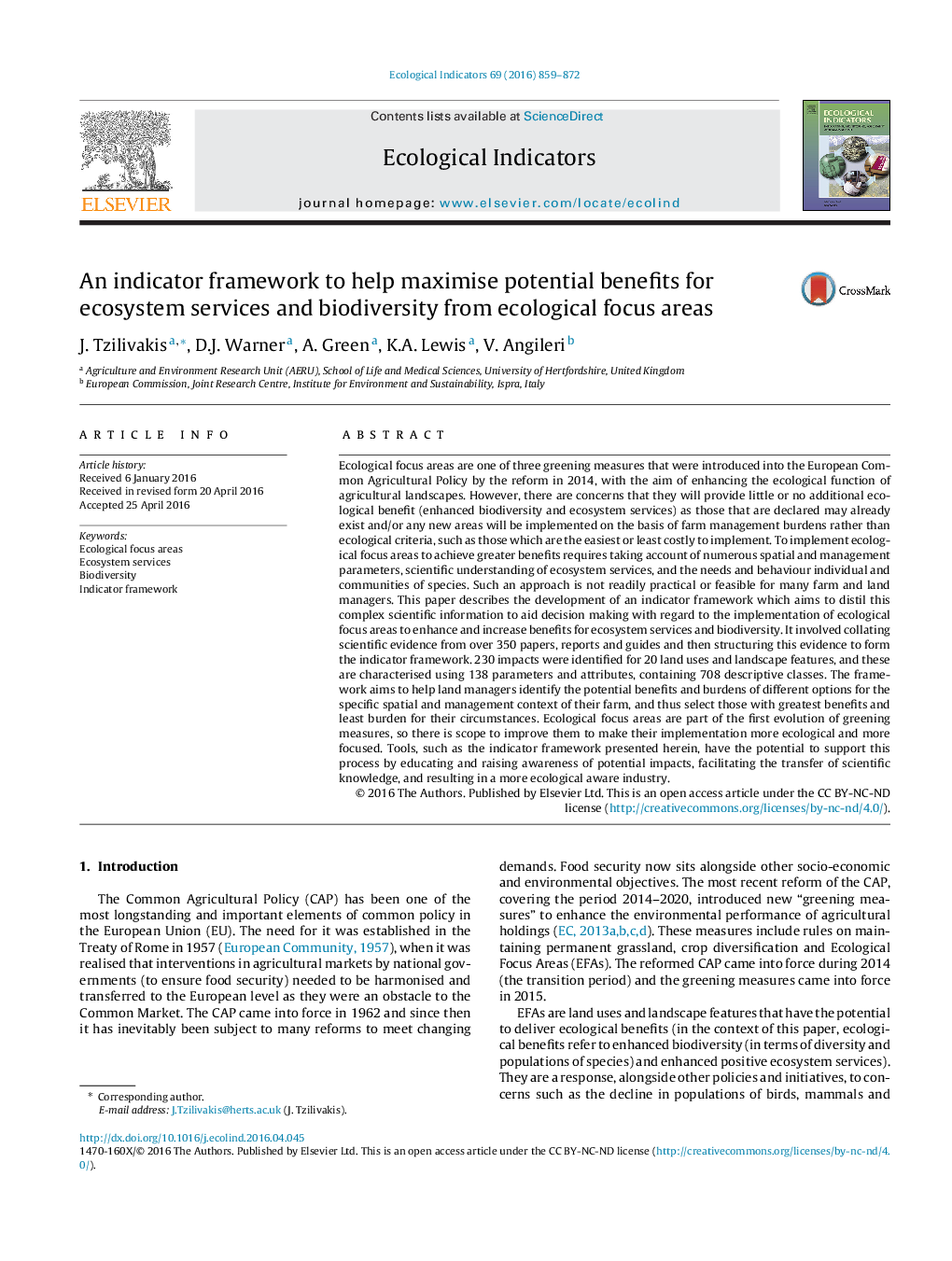| Article ID | Journal | Published Year | Pages | File Type |
|---|---|---|---|---|
| 6293370 | Ecological Indicators | 2016 | 14 Pages |
Abstract
Ecological focus areas are one of three greening measures that were introduced into the European Common Agricultural Policy by the reform in 2014, with the aim of enhancing the ecological function of agricultural landscapes. However, there are concerns that they will provide little or no additional ecological benefit (enhanced biodiversity and ecosystem services) as those that are declared may already exist and/or any new areas will be implemented on the basis of farm management burdens rather than ecological criteria, such as those which are the easiest or least costly to implement. To implement ecological focus areas to achieve greater benefits requires taking account of numerous spatial and management parameters, scientific understanding of ecosystem services, and the needs and behaviour individual and communities of species. Such an approach is not readily practical or feasible for many farm and land managers. This paper describes the development of an indicator framework which aims to distil this complex scientific information to aid decision making with regard to the implementation of ecological focus areas to enhance and increase benefits for ecosystem services and biodiversity. It involved collating scientific evidence from over 350 papers, reports and guides and then structuring this evidence to form the indicator framework. 230 impacts were identified for 20 land uses and landscape features, and these are characterised using 138 parameters and attributes, containing 708 descriptive classes. The framework aims to help land managers identify the potential benefits and burdens of different options for the specific spatial and management context of their farm, and thus select those with greatest benefits and least burden for their circumstances. Ecological focus areas are part of the first evolution of greening measures, so there is scope to improve them to make their implementation more ecological and more focused. Tools, such as the indicator framework presented herein, have the potential to support this process by educating and raising awareness of potential impacts, facilitating the transfer of scientific knowledge, and resulting in a more ecological aware industry.
Related Topics
Life Sciences
Agricultural and Biological Sciences
Ecology, Evolution, Behavior and Systematics
Authors
J. Tzilivakis, D.J. Warner, A. Green, K.A. Lewis, V. Angileri,
